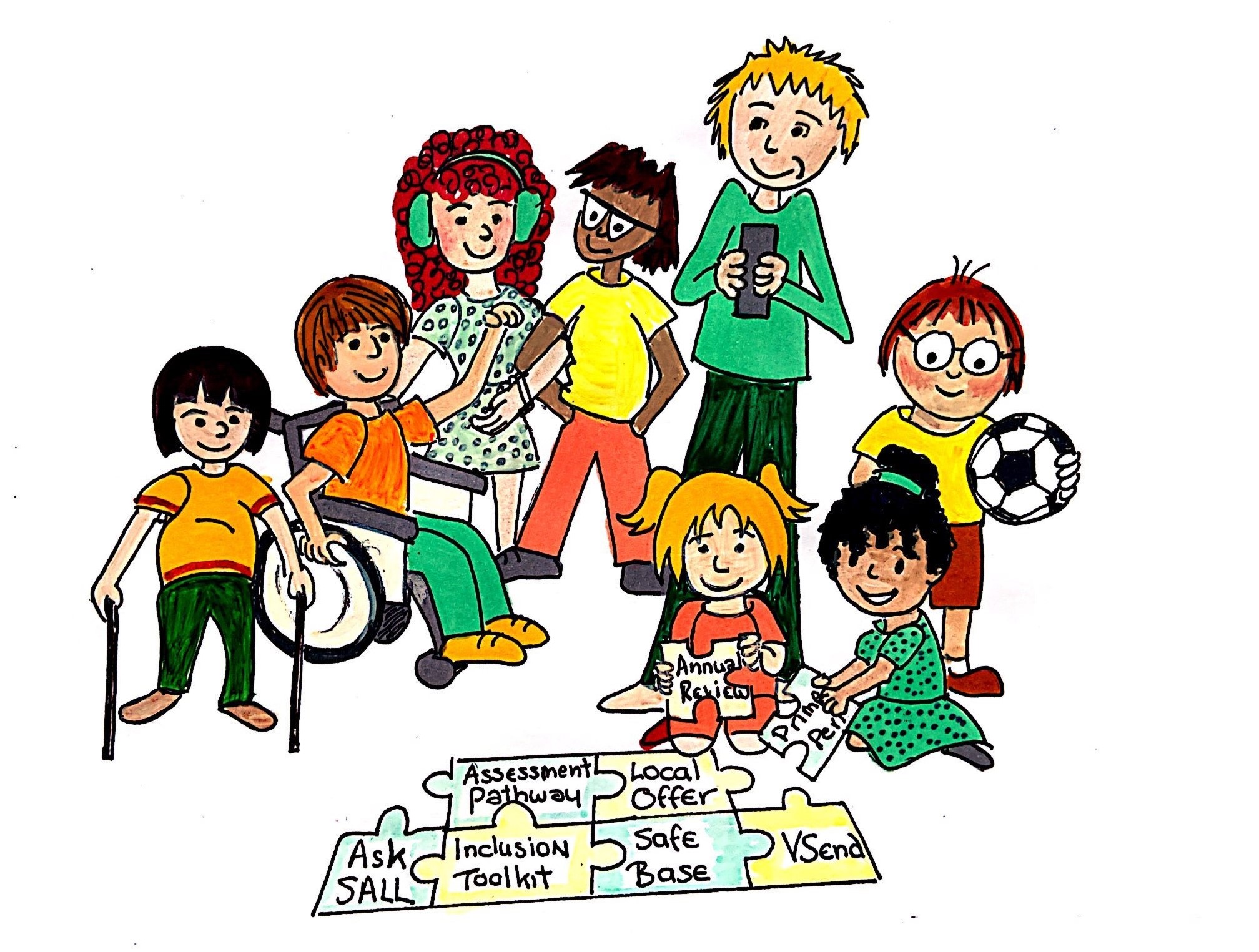Level 5-6 what you may notice
0-5
The child may display significant and consistent difficulties with social interaction, interpreting situations and the social use of language.
- the child has difficulties with social communication and developing relationships, including difficulties with turn-taking
- does not actively explore the environment
- does not respond to familiar sounds, words - including their name - or finger play. Attention is fleeting and not under their control.
- does not make sounds in play for example, ‘brmm’ for car
- tends to avoid approaches from other children and seldom starts interactions
- show a preference for solitary actions and may react physically if others try to join for play.
- high levels of anxiety and sensory sensitivities affect access to the curriculum and often lead to challenging behaviour
5-16
The pupil shows frequent social, communication and interaction difficulties which interrupt their own and possibly others learning in a range of situations. The pupil’s needs are met using a combination of approaches, including small group interventions and 1:1 individualised support in and out of the classroom, following support, guidance and advice from other professionals as appropriate.
- the impairments resulting from the pupil’s SCD or ASC affecting their social development, communications and rigidity of behaviour and thought are enduring, consistently impeding their learning and leading to severe difficulties in functioning within the setting environment
- evidence of the pupil’s need for a more specific programme of support to develop their social communication skills
- evidence of significant difficulties persisting for the pupil as a result of their inflexibility of thoughts (resistance to change and new experiences, impaired theory of mind).
- high levels of anxiety
- co-occurring difficulties or neuro diverse needs. For example, co-ordination difficulties, attention difficulties
- additional speech and language difficulties
- more prominent sensory needs
- more intensive rigidity or single mindedness. Has persistent patterns of behaviour that interfere with their ability to learn
- they struggle to understand social interactions and interpret other people’s behaviour, intentions, social cues and norms and non-verbal communication such as eye contact, gesture, and do not always recognise conversational breakdown
- they lack the ability to manage conversations with either adults or peers, and social interactions needed to make and maintain friendships.
- may have intense or obsessional friendships or relationships
- high anxiety manifested in avoidance or stress indicators often leading to challenging behaviour
- experiences ‘meltdown’ regularly
- prefers to play alone and tends to focus on own choice of activities. Limited interest in pretend and imaginative play, prefers concrete and repetitive activities
- difficulties with change in routine or in response to expectations, even with forewarning. Times of change can trigger obsessive and repetitive behaviours or short-term distress
- has sensory issues such as oversensitivity to noise
- pssible mental health difficulties
- consistent difficulty with understanding language and communicating
- pupil’s language difficulties affect curriculum access, indicated by attainments below expected level, and poor social relationships. For example, appears highly verbal but requires visual support to understand language
- the pupil’s ability to communicate effectively may fluctuate depending on their level of emotional regulation


